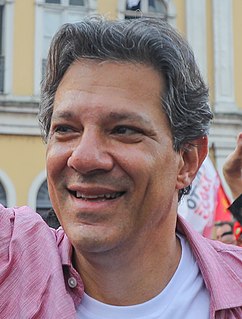A Quote by Michael Jensen
There is no other proposition in economics that has more solid empirical evidence supporting it than the Efficient Market Hypothesis... In the literature of finance, accounting, and the economics of uncertainty, the EMH is accepted as a fact of life.
Related Quotes
When people are running up more and more debt for housing, they call that "real wealth." It exposes what's wrong in the mainstream economics and why most of the economics that justifies austerity programs and economic shrinkage is in the textbooks is not scientific. Junk economics denies the role of debt and denies the fact that the economic system we have now is dysfunctional.
I do sense, as compared with let's say the early '50s, there's somewhat more of a careerism. I don't think it's anything special to economics; it's equally true with physics or biology. A graduate education has become a more career-oriented thing, and part of that is because of the need for funding. In fact, that's a much worse problem in the natural sciences than it is in economics. So you can't even do your work in the natural sciences, particularly, and even to some extent in economics, without funding.
If you go back to Adam Smith, you find the idea that markets and market forces operate as an invisible hand. This is the traditional laissez-faire market idea. But today, when economics is increasingly defined as the science of incentive, it becomes clear that the use of incentives involves quite active intervention, either by an economist or a policy maker, in using financial inducements to motivate behavior. In fact, so much though that we now almost take for granted that incentives are central to the subject of economics.
Berkshire's whole record has been achieved without paying one ounce of attention to the efficient market theory in its hard form. And not one ounce of attention to the descendants of that idea, which came out of academic economics and went into corporate finance and morphed into such obscenities as the capital asset pricing model, which we also paid no attention to. I think you'd have to believe in the tooth fairy to believe that you could easily outperform the market by seven-percentage points per annum just by investing in high volatility stocks.
I started in the law; and the study of law, when it precedes the study of economics, gives you a set of foundation principles about how human beings interact. Economics is very useful, and I studied economics in graduate school. But without understanding the social and organizational context of economics, it becomes a theory without any groundwork.



































